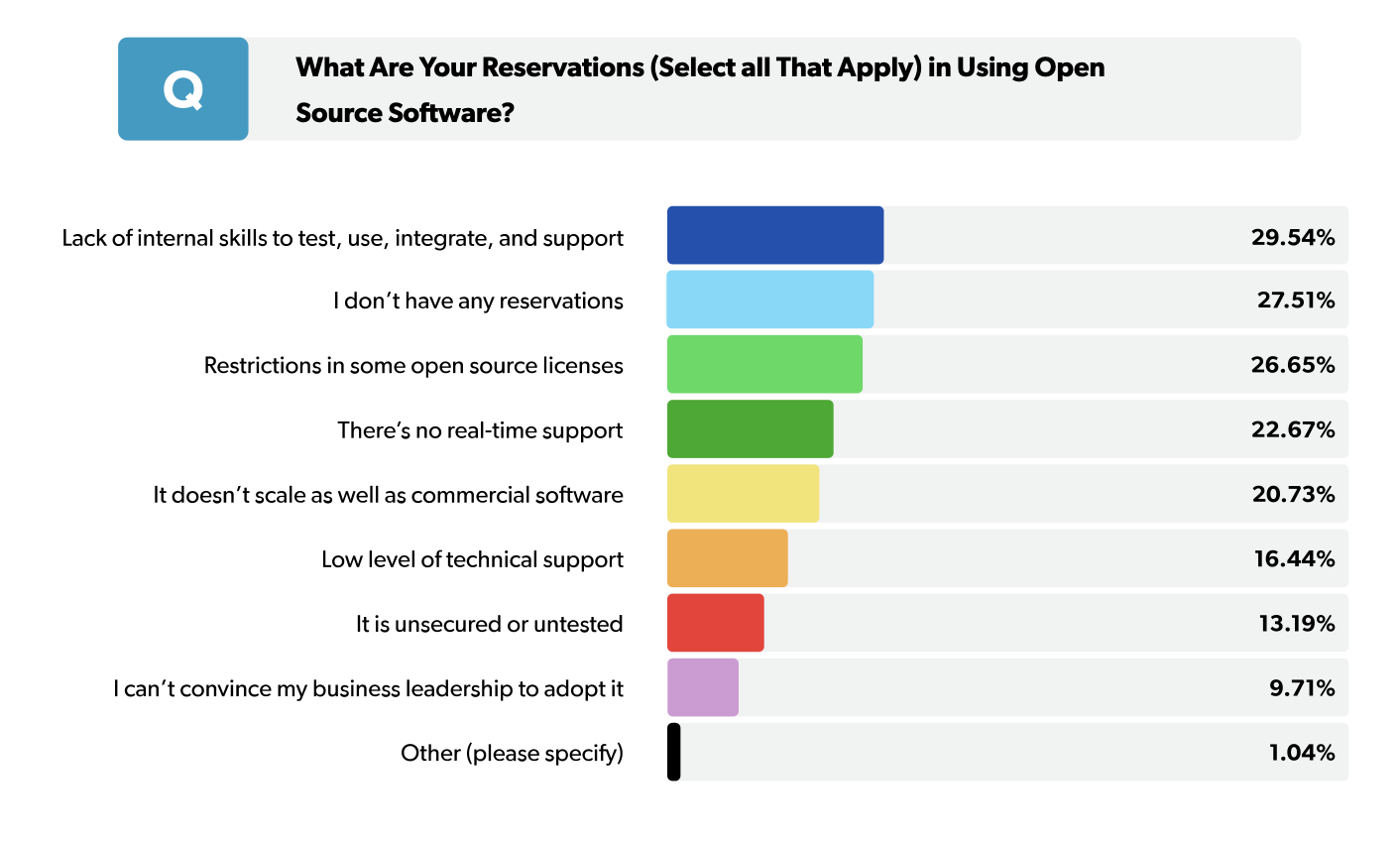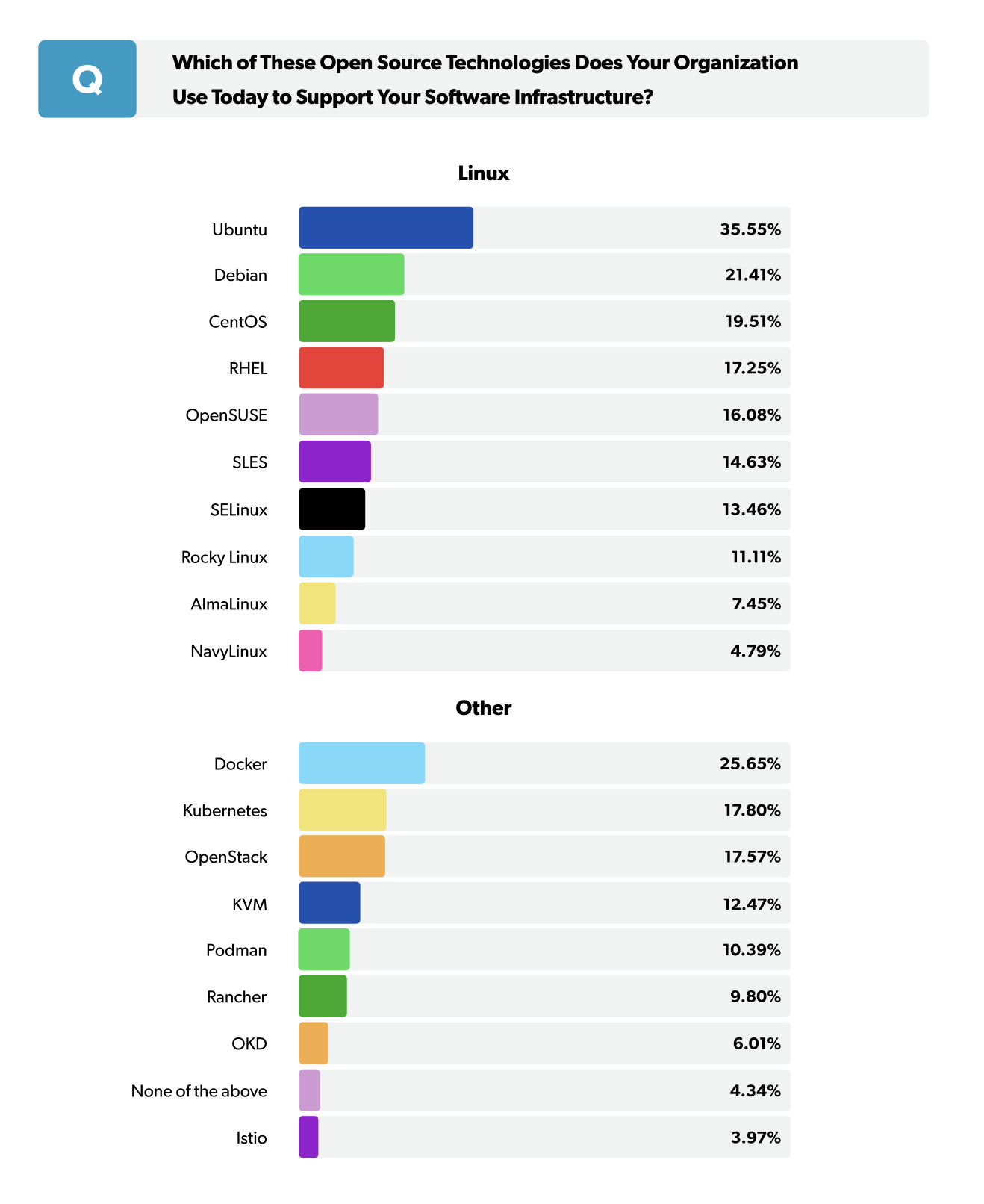The love for open source software is showing no signs of slowing down
The love for open source software is spread across the whole technology spectrum, a new report looking at the state of developing software and the tools needed to do so has claimed.
The 2022 State of Open Source Report, conducted by OpenLogic, surveyed 2,660 professionals and their organisations that use open source tools.
If you are a software developer or work in an adjacent industry then this is probably no surprise: open source tools are the glue that holds so many things together, a community of selfless individuals working towards a bigger goal.
Open source love
The report asked respondents a series of questions to gauge their interest (and love) for open source, covering a wide variety of roles and companies (see below for more on the specific methodologies).
Most respondents use an open source programming language or framework, closely followed by databases, OSes, Git repos, frameworks for AI/ML/DL, and the cloud.
When it comes to reservations, respondents highlighted a lack of skills. But, perhaps most interestingly, a full 27% said they had no reservations at all.

When it came to reasons for using open source, the answers were clear: access to innovations and latest technologies; no license cost, meaning an overall cost reduction; modernising their technology stack; many options for similar technologies; and constant releases and patches.

Methodology
Most (38%) are technology companies, but lots of other sectors are represented: consulting, banking and finance, transport, telecoms, education, healthcare, public sector, and so on. 39% of companies were between 100 and 1,000 employees, 32% were under 100 employees, and 28% were over 1,000 employees.
In terms of the regions, North America dominated, representing 52.6% of respondents, followed by Asia Pacific (12.4%), UK and Europe (10.9%), Asia (7.7%), Middle East (6.6%), Latin America (5.2%), Africa (4.2%), and Oceania (0.32%).
Full Stack Developers were the highest respondents, representing 21.8%, followed by Back End (18.5%), Front End (16%), Engineering (15.7%), Project Management (14.4%), Architect (14.4%), DevOps (12.6%), and so on.
For all the latest Technology News Click Here
For the latest news and updates, follow us on Google News.
